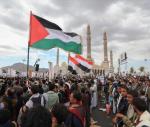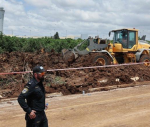You are here
To harness extremism
Dec 29,2014 - Last updated at Dec 29,2014
The government has been calling upon its friends and allies to donate more aid fund to help improve the economic situation in the country.
The justification is the need to avoid having vulnerable groups, especially the youth, attracted by extremist groups like IS.
The request for further external support is only valid if domestic policies are also working on removing such a threat. In other words, government policy should be aimed at creating jobs in the short run and development in the medium and long terms.
Some background first. More than four years ago, February 13, 2010, to be exact, I wrote an article on “the economics of terrorism”, which remains relevant.
The piece underscored that terrorist organisations look for compliant people (who would not think twice about blowing themselves up should their handlers ask them to do so), thus totalitarian regimes that reward obedience and absolute loyalty, and not merit, breed grounds for terrorist mindsets and terrorists.
Also, terrorist organisations are ruled by a handful of people who decide the politics and the direction of the organisation. Authoritarian regimes are similar in that respect; they are ruled by the elites who know it all.
Economic policy is decided based on criteria gleaned by the elites and not necessarily shared by the people. Unlike democratic societies, rulers in authoritarian systems do not have to listen to the opinions and interests of the various groups in society to make economic decisions and policies.
Given the high unemployment among youth and the long waiting time till finding a job and graduate into the adult world, one would think that frustration is rife in Jordan.
Government policy should be focused, therefore, on job creation in order to avoid the exodus of youth to organisations with extremist agendas, something that no one who is sound of mind would want.
Hence, the drive to ask for more aid.
Yet, aid was received from the GCC countries and is yet to be spent. Furthermore, the government, instead of using it as an addition to help revamp the country’s infrastructure and dilapidated health and educational systems, is using it in lieu of its own money.
In other words, it is freeing up its own resources for more operational expenditures and waste instead of reforming and rejuvenating an economy that has been in recession for the last three years.
In addition, the government just managed to pass a piece of legislation at the Lower House that increases taxation even though the country is in a recession, which goes against the teachings of any school of economic thought and any common sense.
It is doing this even though the Amman Chamber of Commerce placed a half page advertisement basically begging the government not to endorse the new legislation.
But the straw that may break the camel’s back is raising the price of electricity by 15 per cent in spite of the loud complaints of industrialists that this would push them to close factories (in fact a group of them threatened to do exactly that).
Already over 1,000 factories moved into the informal market last year and more will follow — thus causing the government greater losses in terms of tax revenues.
We cannot ask our friends and allies for more aid to help curb the growing threat of terrorism through economic relief if the government’s own policies can hardly be called welfare oriented.













